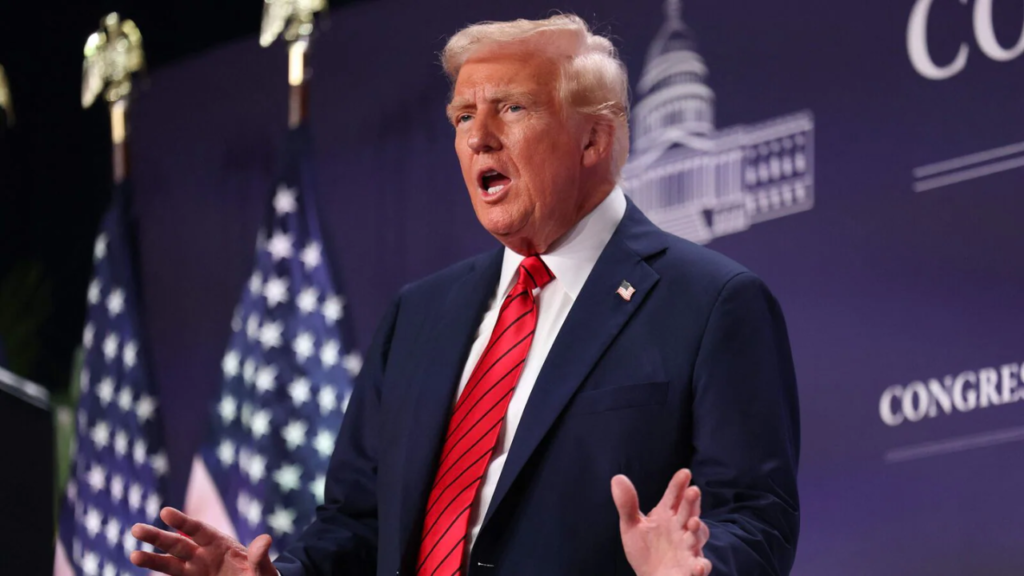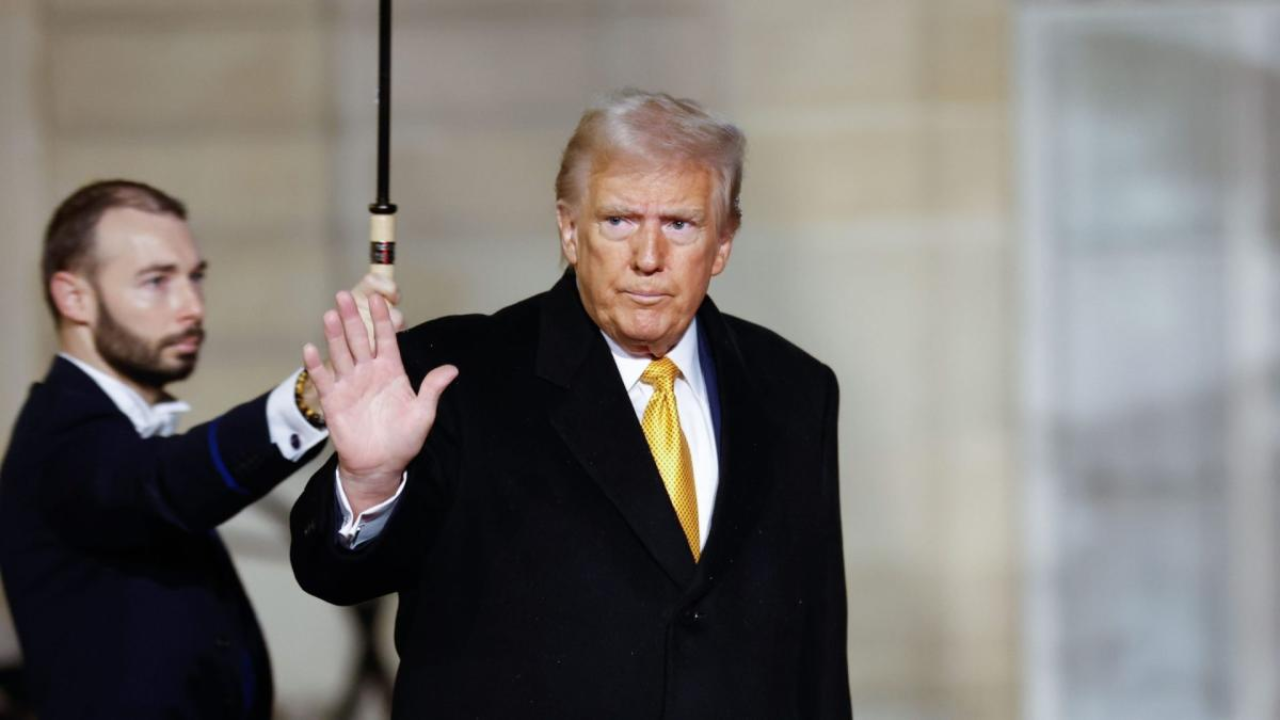President Donald Trump has suggested that millions of Americans could soon see their income taxes reduced or even eliminated, thanks to the money the government could make from his proposed tariffs.
In a post on Truth Social early Sunday morning, Trump said that many working families would see their taxes “substantially reduced” or possibly wiped out altogether.
He explained that once Washington starts collecting money from what he is calling a “reciprocal” tariff policy, there would be enough new revenue to allow for major tax relief.
Trump specifically mentioned that the focus would be on individuals earning less than $200,000 a year. According to him, this move would be a huge boost for American workers and families.
“It will be a BONANZA FOR AMERICA!!! THE EXTERNAL REVENUE SERVICE IS HAPPENING!!!” Trump wrote, highlighting that this plan could also lead to more job creation across the country.
Earlier this month, Trump announced a broad set of tariffs that would apply to dozens of countries. Under this plan, most goods imported into the United States would face a 10% tariff. Some countries would face even steeper rates, with China being hit the hardest at up to 145% on certain goods.
However, these tariffs have not been fully rolled out yet. Trump said there would be a 90-day pause before they take effect, to allow time for other countries to negotiate better deals with Washington.
If deals can be made, some of the tariffs could be reduced or even canceled. Until then, businesses and consumers around the world are facing uncertainty about what the future holds.
There is growing concern that these high tariffs could have major effects on the economy. Many experts warn that the extra costs on imported goods could be passed down to American consumers, causing prices to rise on everyday items. This could hurt not only shoppers but also businesses that rely on parts and materials from overseas.
Still, Trump has repeatedly said that the tariffs will bring in enough money to help American taxpayers. He has even floated the idea that revenue from tariffs could replace income taxes for many people. It’s a bold claim that has caught the attention of millions, but many economists are urging caution.
A recent study by the Council on Foreign Relations took a closer look at the numbers. The study found that Americans earning less than $150,000 a year currently contribute about $576 billion in income taxes to the federal government.
Meanwhile, under Trump’s current tariff plan, even the most optimistic estimates suggest the government would only collect around $511 billion from tariffs.
That leaves a shortfall of around $65 billion, meaning the government would not have enough money to eliminate income taxes for the bottom 90% of earners.
Experts have also pointed out that high tariffs could reduce the amount of goods being imported into the country. If fewer products are brought into the U.S., then the amount of money collected from tariffs would also go down. In short, the government might not make as much as Trump hopes.
In March, Peter Navarro, who served as a trade adviser to Trump during his first term, claimed that the U.S. could bring in up to $600 billion a year from tariffs.

But many economists say this number is unrealistic. Mark Zandi, the chief economist at Moody’s Analytics, told CNBC that reaching even $100 billion to $200 billion would be considered lucky under current trade conditions.
Despite these concerns, Trump is standing by his plan. He argues that the United States has been taken advantage of for too long when it comes to trade deals, and that it’s time for America to start benefiting more from its economic relationships with other countries. According to Trump, tariffs are a way to level the playing field and bring money back into the country.
Supporters of Trump’s plan say that bringing in revenue through tariffs makes sense, especially if it helps cut taxes for millions of working Americans.
They believe that making foreign companies pay more to sell their goods in the U.S. is a smart strategy that could lead to stronger American businesses and more job opportunities at home.
On the other hand, critics argue that tariffs are simply another form of tax, but one that consumers end up paying indirectly through higher prices. They worry that instead of helping Americans, tariffs could end up costing them more at the checkout counter, making it harder for families to afford basic goods.
There is also concern about the long-term impact on international trade. Some fear that other countries could retaliate by putting their own tariffs on American products, making it harder for U.S. businesses to sell goods abroad.
This could hurt industries like farming, manufacturing, and technology, which rely heavily on international markets.
For now, Trump’s idea remains just a proposal. It’s unclear how much support it will have in Congress or how easily it could be put into action. Any major changes to the tax system would likely require new laws, debates, and negotiations in Washington, which could take months or even years to finalize.
Still, Trump’s message is clear: he wants to find a way to reduce the burden on American taxpayers, and he believes that tariffs could be the answer.
Whether this plan succeeds or not, it’s certain to be a major topic of conversation as Trump continues to campaign and push his economic agenda.
Many Americans are eager to hear more details about how this would work and whether it could really mean no more income taxes for millions of people. Until then, the country waits to see if Trump’s bold promises can turn into real change.
Disclaimer- Our team has thoroughly fact-checked this article to ensure its accuracy and maintain its credibility. We are committed to providing honest and reliable content for our readers.






